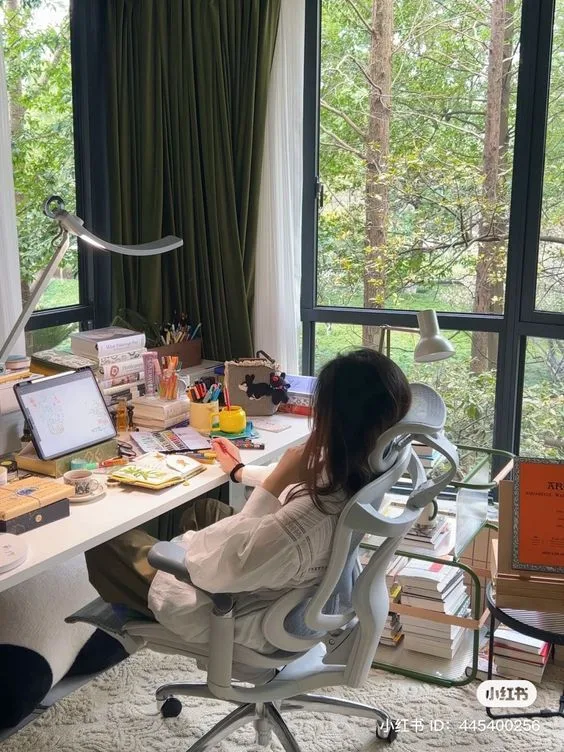Office House

1. Choose the Right Location
The location of your home office is crucial for productivity. Ideally, it should be a quiet space away from high-traffic areas in your home. If you have a spare room, converting it into an office can provide the privacy you need. If space is limited, consider transforming a corner of your living room or bedroom into a compact work area.
2. Invest in Ergonomic Furniture
Comfort is key when spending long hours at a desk. Invest in ergonomic furniture that supports good posture and reduces strain. A quality office chair, an adjustable desk, and a monitor stand can make a significant difference in your comfort and productivity.
3. Maximize Natural Light
Natural light can boost your mood and energy levels. Position your desk near a window to take advantage of daylight. If natural light is limited, use bright, adjustable lighting to create a well-lit environment that reduces eye strain.
4. Optimize Storage Solutions
Clutter can be distracting and hinder productivity. Utilize smart storage solutions to keep your workspace organized. Shelves, cabinets, and drawer organizers can help you store office supplies, documents, and equipment neatly.
5. Personalize Your Space
A personalized workspace can inspire creativity and make you feel more comfortable. Decorate your office with artwork, plants, and personal items that motivate and bring you joy. Just be careful not to overcrowd the space with too many decorations.
6. Incorporate Technology
Ensure your home office is equipped with the necessary technology for your work. High-speed internet, a reliable computer, and essential peripherals like a printer and scanner are crucial. Consider cable management solutions to keep wires organized and out of sight.
7. Create a Dedicated Work Zone
Define your work area clearly to establish boundaries between work and personal life. This can be done with furniture placement, rugs, or room dividers. A dedicated work zone helps you mentally switch between work mode and relaxation mode, improving work-life balance.
8. Soundproofing
If noise is a concern, consider adding soundproofing elements to your office. Thick rugs, heavy curtains, and acoustic panels can help reduce noise levels, creating a quieter and more focused environment.
9. Maintain a Clean and Tidy Space
Regularly clean and declutter your home office to maintain a pleasant and efficient workspace. A tidy environment can reduce stress and enhance your ability to concentrate on tasks.
10. Prioritize Comfort
Small touches can make your office more comfortable and inviting. A cozy throw, a soft cushion, or a small fan or heater can enhance your comfort, making your home office a place where you enjoy spending time.





